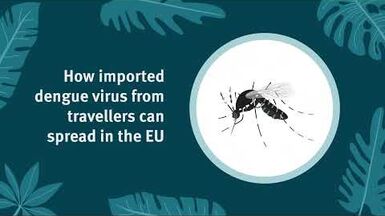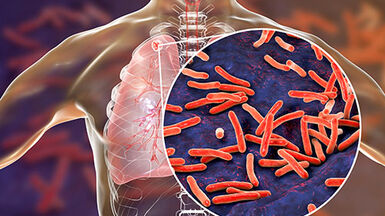Sustainable Development Goals
The Sustainable Development Goals (SDGs) are a set of 17 global goals established by the United Nations in 2015. These goals represent a universal call to action to end poverty, protect the planet and ensure that all people enjoy peace and prosperity by 2030, by addressing a range of interconnected global challenges. 
Among the 17 SDGs, Goal 3 specifically focuses on good health and well-being. It aims to ensure healthy lives and promote well-being for all. This encompasses various targets, including ending the epidemics of major communicable diseases. Recognising the interconnectedness of health with other aspects of development, SDG 3 emphasises the importance of addressing health within the broader context of sustainable development.
ECDC's work
ECDC supports EU/EEA countries and the European Commission in reaching target 3.3, which aims to end the epidemics of HIV/AIDS, tuberculosis, malaria, and neglected tropical diseases, and to combat hepatitis and other communicable diseases by 2030. ECDC's work involves improving the collection and quality of data through surveillance and monitoring, and reports on the progress towards SDG 3.3 in relation to HIV, TB, hepatitis and STIs annually. The agency also provides scientific advice and guidance on evidence-based interventions for the prevention and control of these diseases.
In addition, ECDC coordinates disease-specific networks and collaborates with various stakeholders, including WHO Europe and other EU agencies, to foster information exchange and joint efforts. Capacity building and country support are also integral to ECDC's activities, ensuring that EU/EEA countries have the necessary capabilities to achieve the SDG targets.
Find out more
Country support in diseases related to the Sustainable Development Goals
Sustainable Development Goal (SDG) 3.3 is to ‘end the epidemics of AIDS, tuberculosis, malaria and neglected tropical diseases and combat hepatitis, water-borne diseases, and other communicable diseases’ by 2030.








